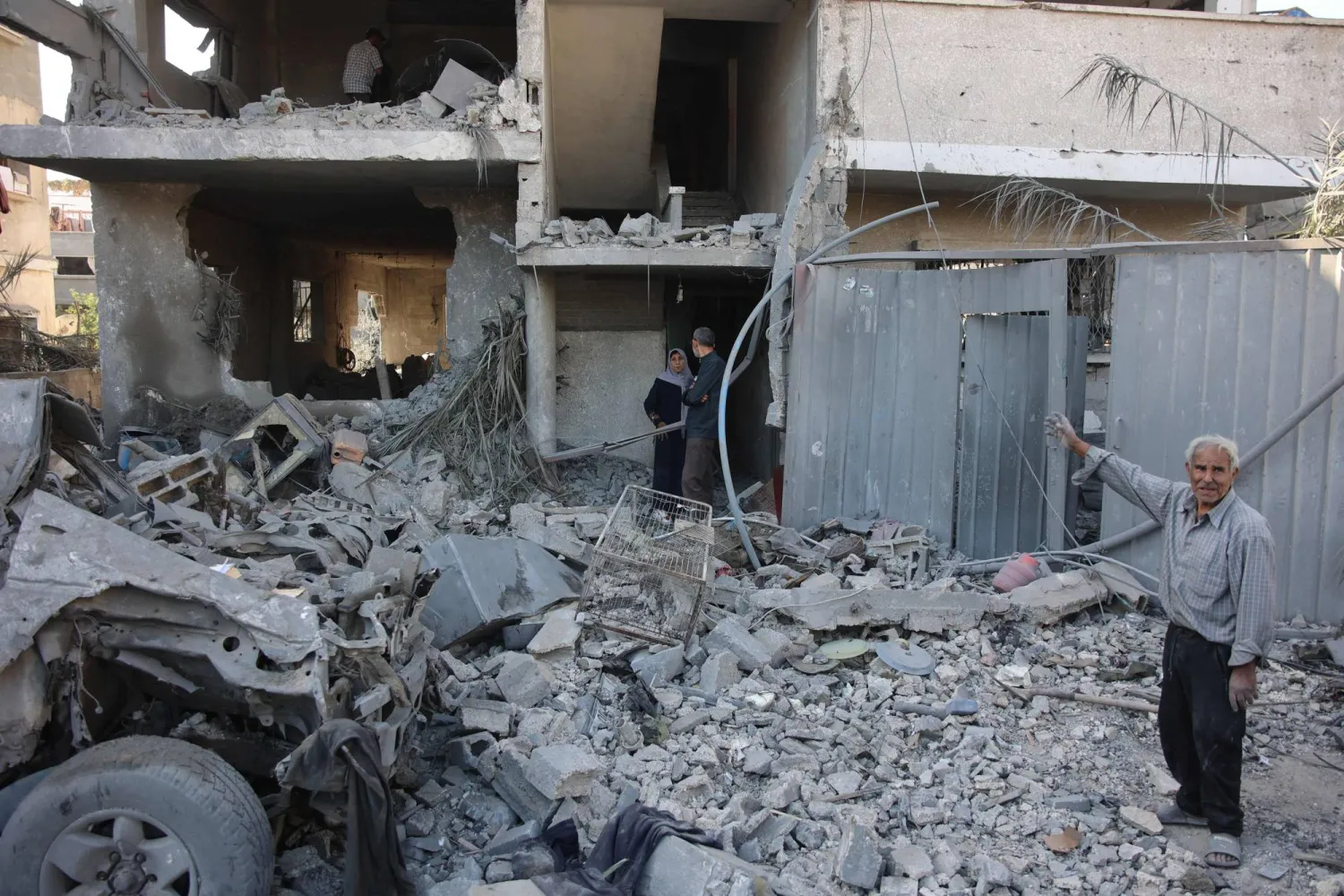The Israeli military issued new evacuation orders to residents in areas of an eastern Gaza City suburb, setting off a new wave of displacement on Sunday, and a Gaza hospital director was injured in an Israeli drone attack, Palestinian medics said.
The new orders for the Shejaia suburb posted by the Israeli army spokesperson on X on Saturday night were blamed on Palestinian militants firing rockets from that heavily built-up district in the north of the Gaza Strip.
"For your safety, you must evacuate immediately to the south," the military's post said. The rocket volley on Saturday was claimed by Hamas' armed wing, which said it had targeted an Israeli army base over the border.
Footage circulated on social and Palestinian media, which Reuters could not immediately verify, showed residents leaving Shejaia on donkey carts and rickshaws, with others, including children carrying backpacks, walking.
Families living in the targeted areas began fleeing their homes after nightfall on Saturday and into Sunday's early hours, residents and Palestinian media said - the latest in multiple waves of displacement since the war began 13 months ago.
In central Gaza, health officials said at least 10 Palestinians were killed in Israeli airstrikes on the urban camps of Al-Maghazi and Al-Bureij since Saturday night.
HOSPITAL DIRECTOR WOUNDED BY GUNFIRE
In north Gaza, where Israeli forces have been operating against regrouping Hamas militants since early last month, health officials said an Israeli drone dropped bombs on Kamal Adwan Hospital, injuring its director Hussam Abu Safiya.
"This will not stop us from completing our humanitarian mission and we will continue to do this job at any cost," Abu Safiya said in a video statement circulated by the health ministry on Sunday.
"We are being targeted daily. They targeted me a while ago but this will not deter us...," he said from his hospital bed.
Israeli forces say armed militants use civilian buildings including housing blocks, hospitals and schools for operational cover. Hamas denies this, accusing Israeli forces of indiscriminately targeting populated areas.
Kamal Adwan is one of three hospitals in north Gaza that are barely operational as the health ministry said the Israeli forces have detained and expelled medical staff and prevented emergency medical, food and fuel supplies from reaching them.
In the past few weeks, Israel said it had facilitated the delivery of medical and fuel supplies and the transfer of patients from north Gaza hospitals in collaboration with international agencies such as the World Health Organization.
Residents in three embattled north Gaza towns - Jabalia, Beit Lahiya and Beit Hanoun - said Israeli forces had blown up hundreds of houses since renewing operations in an area that Israel said months ago had been cleared of militants.
Palestinians say Israel appears determined to depopulate the area permanently to create a buffer zone along the northern edge of Gaza, an accusation Israel denies.
Israel's campaign in Gaza has killed more than 44,000 people, uprooted nearly all the enclave's 2.3 million population at least once, according to Gaza officials, while reducing wide swathes of the narrow coastal territory to rubble.
The war erupted in response to a cross-border attack by Hamas-led militants on Oct. 7, 2023 in which gunmen killed around 1,200 people and took more than 250 hostages back to Gaza, according to Israeli tallies.
Israeli Army Orders Gaza City Suburb Evacuated, Spurring New Displacement Wave

A Palestinian man points at a damaged building in Jabalia in the northern Gaza Strip on November 20, 2024, amid the ongoing war between Israel and the Palestinian Hamas movement. (Photo by Omar AL-QATTAA / AFP)

Israeli Army Orders Gaza City Suburb Evacuated, Spurring New Displacement Wave

A Palestinian man points at a damaged building in Jabalia in the northern Gaza Strip on November 20, 2024, amid the ongoing war between Israel and the Palestinian Hamas movement. (Photo by Omar AL-QATTAA / AFP)
لم تشترك بعد
انشئ حساباً خاصاً بك لتحصل على أخبار مخصصة لك ولتتمتع بخاصية حفظ المقالات وتتلقى نشراتنا البريدية المتنوعة







